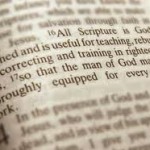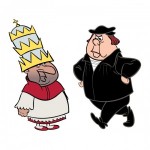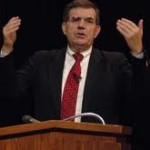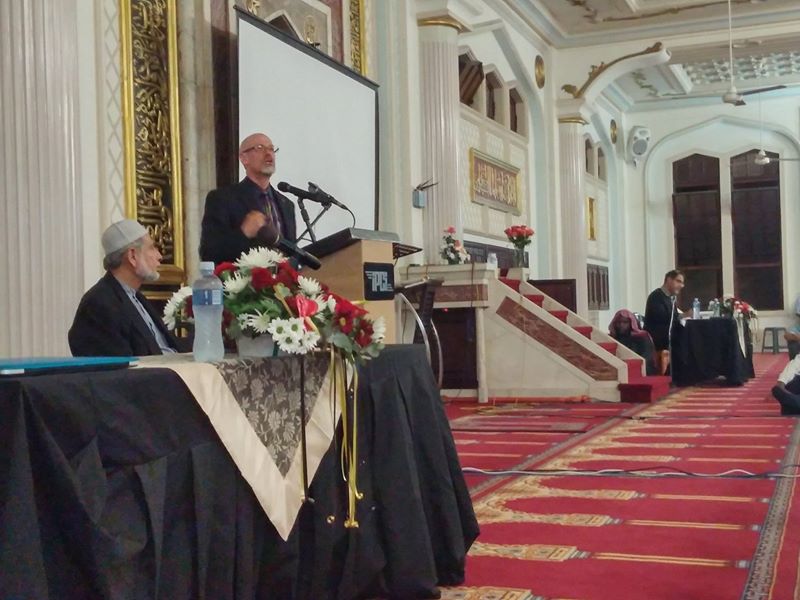 In an article entitled, “Is the Church over the Bible or is the Bible over the Church?” Michael J Kruger if one were to respond to each and every erroneous claim on the internet there would be time for little else. But every now and then, an article combines so many misconceptions about the canon is a single place, that a response is warranted. This is the case with the recent article, “There is No ‘Bible’ in the Bible,” by Fr. Stephen Freeman.
In an article entitled, “Is the Church over the Bible or is the Bible over the Church?” Michael J Kruger if one were to respond to each and every erroneous claim on the internet there would be time for little else. But every now and then, an article combines so many misconceptions about the canon is a single place, that a response is warranted. This is the case with the recent article, “There is No ‘Bible’ in the Bible,” by Fr. Stephen Freeman.
Freeman, part of the Orthodox Church in America, has made what is essentially a Roman Catholic argument for the canon (but missing some key portions, as we shall see). His basic claim is that the Bible–as something that is an authority over the church–is a modern, post-Reformation invention. In reality, he claims, the church is the highest authority and the Bible is merely one of many tools used by the church.
Perhaps the best way to respond to Freeman’s article is just to quote it line by line (in italics below), offering a response to each statement as we go. For space reasons, we will not be able to cover every one of his claims, but we will cover the major ones.
1. The word “Bible” simply means “book.” Thus, it is a name that means “the Book.” It is a particularly late notion if for no other reason than that books are a rather late invention.
Freeman makes the claim here that the “Bible” must be late, because books are a late invention. This is stunning to say the least given that Israel had been using books as Scripture for more than a thousand years before Christ was even born. Moreover, early Christianity was a very “bookish” culture right from the start, with a keen interest in reading, producing, and copying books. For more on this point see my article here. Thus, books were not at all a foreign idea to the early Christian faith.
2. There are examples of bound folios of the New Testament dating to around the 4th century, but they may very well have been some of the earliest examples of such productions.
By the term “bound folios” I assume Freeman is referring to early Christian codices that contained multiple books in the same volume. If so, then the “earliest examples” do not derive from the fourth century, but much earlier. At the end of the second century/early third century we have all four gospels in a single volume (P4-64-67, P45), and most, if not all, of Paul’s epistles in a single volume (P46). These codices demonstrate a book consciousness very early in the life of the church.
But, perhaps Freeman mentions the fourth century because he is referring to codices that contain all 27 NT books. He is correct that the fourth century is the first instance of all 27 books bound together (e.g. Codex Sinaiticus; see photo above) But, one does not need all 27 books in a single volume in order to establish that the early church had a canon of Scripture. Books don’t need to be physically bound together in order to viewed as part of a scriptural collection. Indeed, this was precisely the case with the OT books. Individual OT books were often kept in separate rolls, even though they were clearly viewed as part of a larger biblical corpus.
3. The “Bible,” a single book with the whole of the Scriptures included, is indeed modern. It is a by-product of the printing press, fostered by the doctrines of Protestantism.
The discussion above has already refuted the notion that a complete NT canon does not come around until the printing press. In addition, Freeman does not mention the fact that we can determine the extent of the church’s canon in other ways besides the physical book. Early Christians drew up lists of their books from quite an early time. For instance, Origen lists all 27 books in a single list in the third century (see article here). Would Freeman suggest that Origen’s NT canon is simply the “by-product of the printing press fostered by the doctrines of Protestantism”? Continue reading →
 As many of you know, I have had the unique privilege of guest hosting his Dividing Line broadcasts.
As many of you know, I have had the unique privilege of guest hosting his Dividing Line broadcasts.





